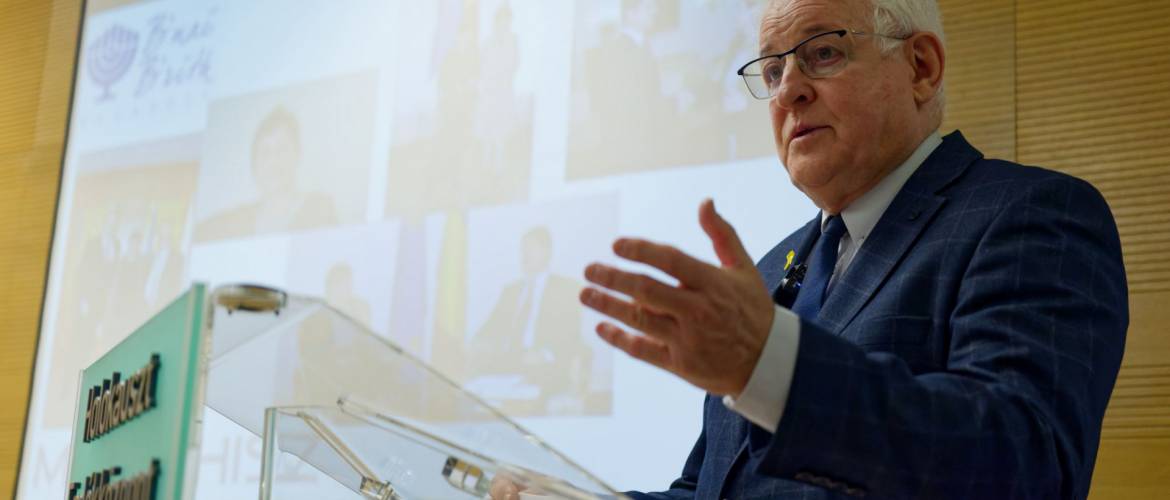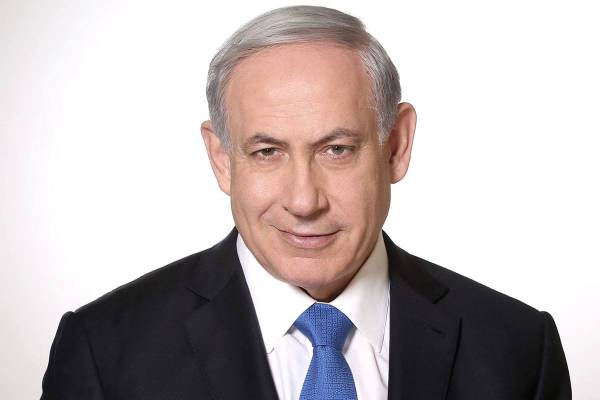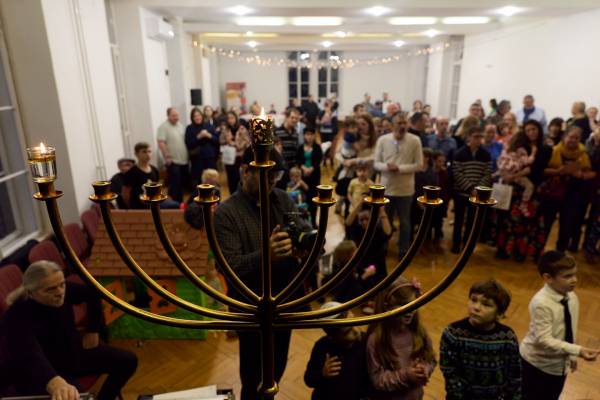On the occasion of Tu BiShvat, a memorial tree
was planted at the Holocaust Memorial Center to honor the memory of Erika van Gelder-Révész
(1947–2015), former president of B’nai B’rith Europe.
The event was attended by Avi Nir-Feldklein,
Chargé d’Affaires of the State of Israel in Hungary, and Gabriel Șopandă,
Romania’s Ambassador to Budapest, along with Prof. Dr. Andor Grósz, President
of the Federation of Jewish Communities in Hungary (Mazsihisz), Dr. András
Zima, Director of the Holocaust Memorial Center, Péter Breuer, President of the
B’nai B’rith Budapest Lodge, Magda Vadász, Vice President of the B’nai B’rith
Budapest Lodge, and György Szabó, President of the Hungarian Jewish Heritage Public
Foundation (MAZSÖK).
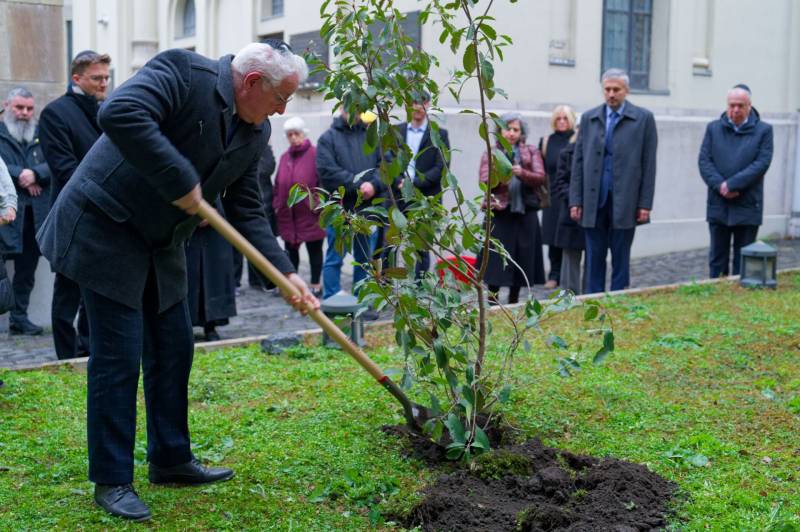 Prof. Dr. Grósz Andor
Prof. Dr. Grósz Andor
Many programs of B’nai B’rith Europe are
associated with Erika van Gelder-Révész, the most well-known being Bridges
of Tolerance. For her work, she received prestigious awards from the
Romanian state, the Dutch royal family, and B’nai B’rith Europe’s first lodge,
the Hillel Lodge of Amsterdam – as highlighted in a tribute speech by Magda
Vadász.
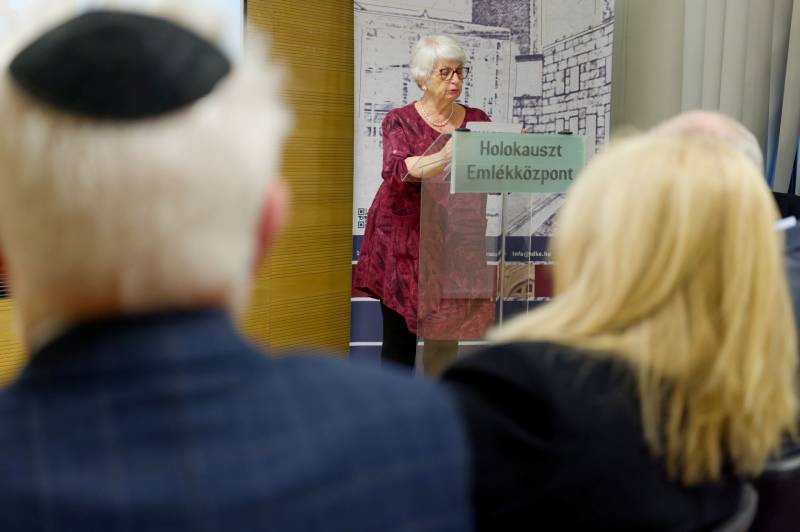 Vadász Magda
Vadász Magda
At the event, Péter Breuer spoke about the
importance of remembrance and commemoration, emphasizing that this is why the
Holocaust Memorial Center was chosen as the venue.
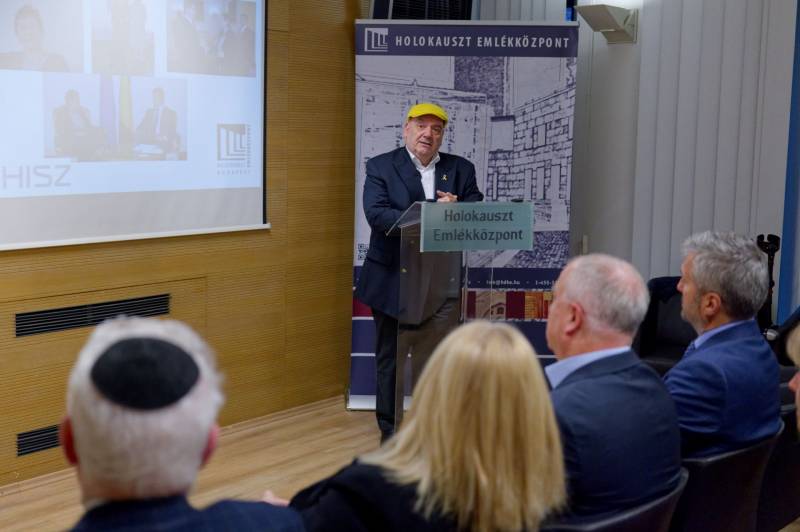 Breuer Péter
Breuer Péter
During the commemoration, Dr. András Zima
stressed that it is crucial for the institution he manages to maintain a living
relationship with both religious and non-religious Jewish organizations, in
Hungary and abroad, despite the fact that the Holocaust Memorial Center is not
a Jewish institution.
Prof. Dr. Andor Grósz, President of Mazsihisz,
quoted Erika van Gelder-Révész:
„A bridge is built in order to extend your world – wrote Erika van Gelder-Révész more than a decade ago about the Bridges of Tolerance project she led, - in order to explore the other side. On a bridge, we may walk in opposite directions and yet we are walking towards each other. This multi-purpose project is made necessary and gains in urgency with each racist manifestation, each act of discrimination and intolerance, each anti-Semitic incident, each tolerated extreme right parade through the streets of Europe!”
The Mazsihisz president stated that these words
might be even more relevant today than when Erika first expressed them. As a
bridge-builder, she believed that dialogue and cooperation are the most
powerful tools in the fight against hatred and prejudice. Her bridges did not
only span ethnic or cultural differences but also opened pathways in people’s
hearts and minds.
It was emphasized that the memorial tree
planted at the Holocaust Memorial Center is not only a living symbol of Erika
van Gelder-Révész’s life and work but also a representation of hope,
remembrance, and faith in the future. Planting a tree on Tu BiShvat is not just
a tradition but also a promise—a promise to nurture our roots while growing
toward the future.
 Prof. Dr. Grósz Andor
Prof. Dr. Grósz Andor
Throughout her life, Erika upheld this
principle: she built bridges between the past and the future, between cultures
and nations. Her work is living proof that respect for the past and commitment
to the future are deeply intertwined.

 02.13. 16:45, kimenete: 02.14. 17:52
02.13. 16:45, kimenete: 02.14. 17:52 


